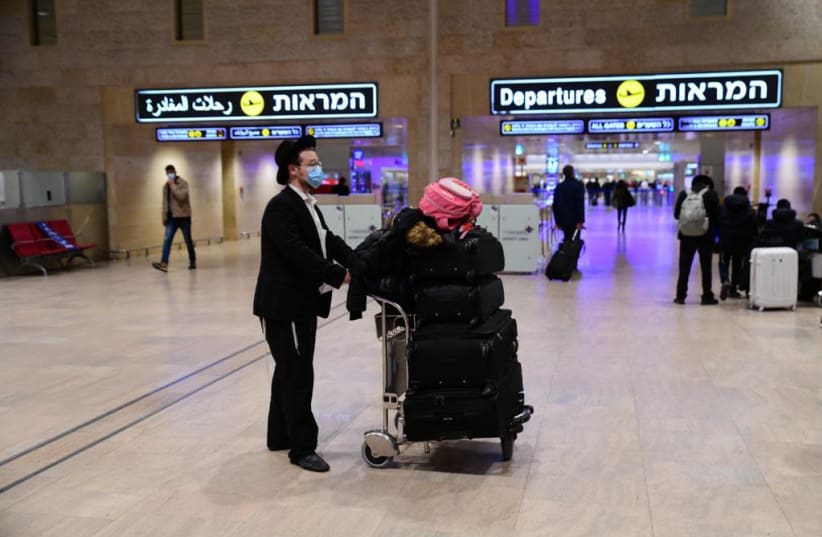The resounding success of Israel’s coronavirus vaccination program has led to a cautious sense of optimism in the country that hasn’t been felt in over a year.
Coronavirus “czar” Nachman Ash said last week that if no drastic rise in new cases of the virus is seen as the country moves to return the education system to full operation, the country could be fully reopened next month.
“We are talking about a few weeks only if the current rates are maintained,” he said. “We want to get past the Passover holidays and see that there are no infections in the schools.”
The sight of bustling cafés, stores and restaurants is heartening. Likewise, the beginning of opening up the skies enabling Israelis to travel abroad and return home is an important step in efforts to return to a sense of normalcy after the pandemic turned everyone’s life upside down.
One of the biggest and most contentious decisions in Israel’s journey back from corona was last week’s announcement to allow non-Israeli first-degree relatives to visit their family members in Israel.
In recent weeks and months, as The Jerusalem Post’s Jeremy Sharon has reported extensively, hundreds of immigrants have become increasingly frustrated and angry owing to the repeated refusal of the Population and Immigration Authority to issue entry permits to their parents and other first-degree relatives seeking to attend weddings and be present for births and other crucial family events.
The regulations issued by the authority now state that a foreign national who is vaccinated against COVID-19, or has recovered from the disease, and who has a first-degree family member who is a citizen or permanent resident of Israel, can visit the country with their spouse or partner and their children.
Until now, having a first-degree relative who is a citizen or resident of Israel did not give foreign nationals any extra right to enter the country.
The change of heart did not happen by itself, but through the tireless efforts of a number of individuals.
Aliyah and Integration Minister Pnina Tamano-Shata, Tourism Minister Orit Farkash-Hacohen and Diaspora Affairs Minister Omer Yankelevitch all spoke out against the restrictive policy, with Tamano-Shata insisting that the government “should not remain apathetic to the distress of olim and [should] always ensure that solutions for immigrants are in place [during national crises].”
Ex-Blue and White MK Michal Cotler-Wunsh, who has also provided heavy assistance for immigrants and their families in recent months, attended a protest last week outside the Knesset organized by the affected immigrant families and said that the policy change days later was a “testament to the need for immigrants’ voices to be part of the decision-making process.”
Much of the credit for the behind-the-scenes efforts to help immigrants tear down the regulations that kept them apart from their families must go to former MK Dov Lipman, who became involved on the micro level with specific family problems and who has worked for months helping immigrants and their family members abroad to enter Israel.
“I believe this is an example of how we, as olim, can stand up and have our voices heard. Especially when we work together, we can make real change in Israel,” said Lipman. “There are daily issues for olim, and we will continue to fight together for the benefit of all of them.”
Dozens of olim who had nobody else to turn to found a receptive pair of ears and an effective pair of hands in Lipman, who was able to use connections and find loopholes to reunite families at their wits’ end.
Farkash-Hacohen called the change of policy “a first step in the resumption of healthy, vaccinated tourism to Israel,” adding that “I believe we will soon publish the plan to reopen the skies and allow vaccinated tourists to visit Israel.”
That is indeed good news, if implemented responsibly and monitored carefully.
But what is just as encouraging is that a specific issue involving immigrants – who are generally very low on the priority list of elected officials – received the attention and support of those who could change the draconian policy, and together they succeeded in overturning it.
